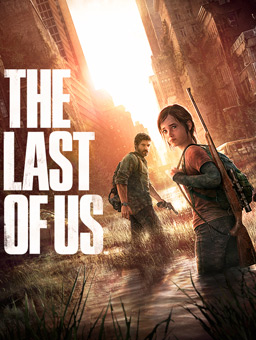
The new post-apocalyptic HBO series “The Last of Us” (2023) has garnered much attention and positive reviews from critics for its outstanding performances and contextual animations. But one storyline in particular has sparked controversy among viewers: a wholesome romantic relationship between two men.
Based on a popular 2013 video game, the “The Last of Us” series, created by Craig Mazin and Neil Druckmann, centers on a world destroyed by a global pandemic of fungi-infected humans. Struggling to survive the harsh environment of a ravaged United States, Joel and Ellie, played by Pedro Pascal and Bella Ramsey, journey westward in search of a cure for the fungal plague.
Episode three, titled “Long, Long Time,” deviates from the main plot and focuses on a queer romance between the characters Bill and Frank, played by Nick Offerman and Murray Bartlet. Expecting another harrowing saga of fungus-zombies and survival, viewers were instead met with a moving story about two men who find a reason to live through each other.
Keeping up with the weekly episode releases, PV senior Jacob Mumey has only positive comments about episode three’s portrayal of Bill and Frank.
“I think their relationship was placed and shown to us in a beautiful way. Coming into the show as ‘minor’ characters and giving us a true romantic outlook on who Bill and Frank are, not only as individuals but as a couple as well, gives a great look on a gay relationship that doesn’t seem unnecessary or forced,” Mumey shared.
However, not everyone shares similar opinions. Episode three has been getting review-bombed on social media and review sites by angered watchers who hold homophobic and discriminatory ideologies.
On IMDB, episode three is currently rated at 7.9/10 while the show is overall rated at 9.2/10. And on Metacritic, episode three has a user score of 5.1/10 while all the other episodes received between seven to nine out of 10.
Users on these sites have made hateful comments in a futile attempt to express their opposition to the show’s addition of Bill and Frank’s relationship. One user on IMDB labeled the episode as a “token representation propaganda snoozefest,” and plenty more reviews claimed the show was pushing the gay agenda and carrying out LGBTQ propaganda.
The fierce backlash in response to the show sheds light on a persistent issue existing within society: homophobia and anti-LGBTQ ideals.
Mumey refutes these discriminatory comments by shedding light on the beauty of Bill and Frank’s relationship, “I don’t think that episode three was at all unnecessary or ruined the show. I think it was a great representation of the fact that there is more to an apocalyptic world than just surviving. Finding a purpose to keep living is a factor that I think is portrayed wonderfully in the episode by Bill and Frank’s relationship and will continue to keep developing throughout the rest of the show.”
In a society where queer narratives are becoming more prominent, it is refreshing to have romances between gay couples portrayed in a way that is not stereotypical or carelessly thrown in just for representation.
After watching the third episode, PV senior Alyssa Powell was amazed by how the show did justice to a LGBTQ romance.
“I loved the way they portrayed Bill and Frank’s relationship. It was very wholesome and didn’t seem fetishized like many gay relationships tend to be on tv. Their romance was incredible for how realistic and healthy it was. Bill and Frank still had arguments but they were reflective of what many real relationships are like. Episode three was tragic, but beautiful, and it moved me to tears at the end,” Powell stated.
Despite the series’ excellent depiction of a gay relationship, the homophobic responses from viewers show just how much improvement still needs to be made regarding the way society perceives the LGBTQ community.
Only eight years ago, the U.S. Supreme Court’s 2015 decision in the Obergefell case legalized same-sex marriage. And in a recent analysis of the National Crime Victimization Survey, an online news organization, The Conversation, found that the odds of being a violent hate crime victim for LGBTQ people in 2019 was nine times greater than it was for cisgender people.
Mazin was able to craft a heartbreaking yet heartwarming short film about companionship while staying relevant to the plot and even adding more dimension to the series. On the surface, Bill and Frank drove the overall plot forward, but on a deeper level, their relationship showed that even amid a worldwide crisis, love can blossom.









